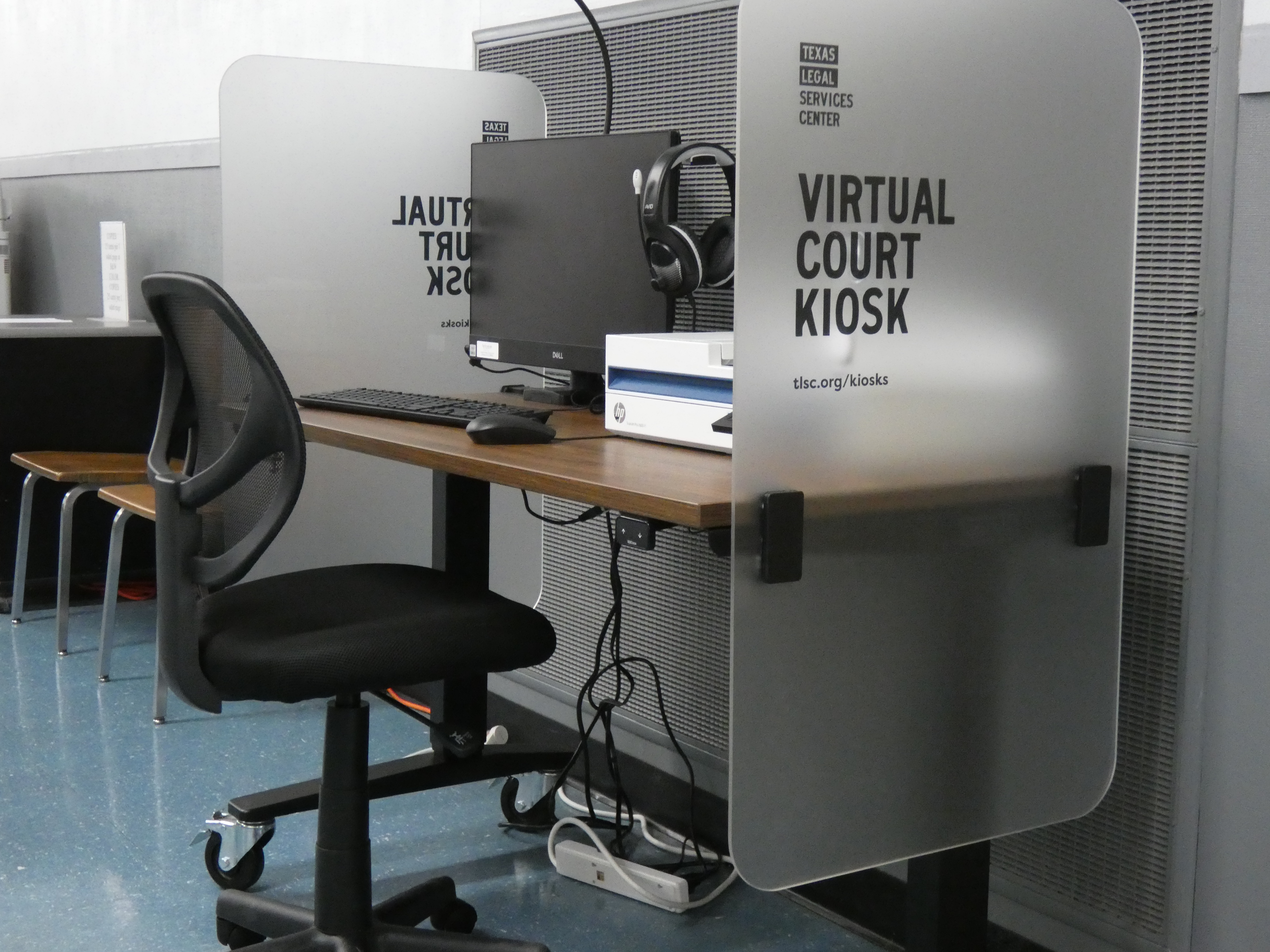US: Nonprofit opens several virtual court kiosks in Texas
People who use the kiosks will also have access to a navigator who can help them get into their court hearing as well as print and upload documents if they need to.

Public kiosks that allow people to attend their virtual court hearings have opened in areas across Texas, as a nonprofit launches a statewide pilot that they hope to expand.
The kiosks—which consist of a computer, a printer/scanner and access to someone who can help—have so far been installed in community centers, shelters and libraries. If the state agrees to give the Texas Legal Services Center additional funding, the organization plans to open one kiosk in every county.
People who use the kiosks will also have access to a navigator who can help them get into their court hearing as well as print and upload documents if they need to.
“More than 21% of all Texans do not have access to high speed internet or Wi-Fi at home, and 44.8% of rural, low-income households in Texas do not have a computer,” said Betty Balli Torres, executive director of the Texas Access to Justice Foundation, which funds the Texas Legal Services Center. “During the 88th State of Texas Legislative session, [our foundation] is asking for additional funding to support the expansion of the kiosk project to increase legal services.”
They currently have enough funding to install 25 throughout the state.
Texas recently became one of the first states to issue a final rule that allowed remote court proceedings on a permanent basis, so video hearings are here to stay.
“We saw the huge access and efficiency benefits [of virtual proceedings] during the pandemic, in terms of more people showing up to court,” Texas Supreme Court Justice Brett Busby said. “That really enabled judges to make better-informed decisions because they have more participation and more information. So we wanted to institutionalize that going forward.”
Busby is the courts liaison for the Texas Access to Justice Foundation and the Texas Access to Justice Commission.
“The legal aid offices say that they turn away about half the people who qualify for services, because they just don’t have enough capacity there,” Busby said. “So the kiosks are one way to help bridge that gap.”


